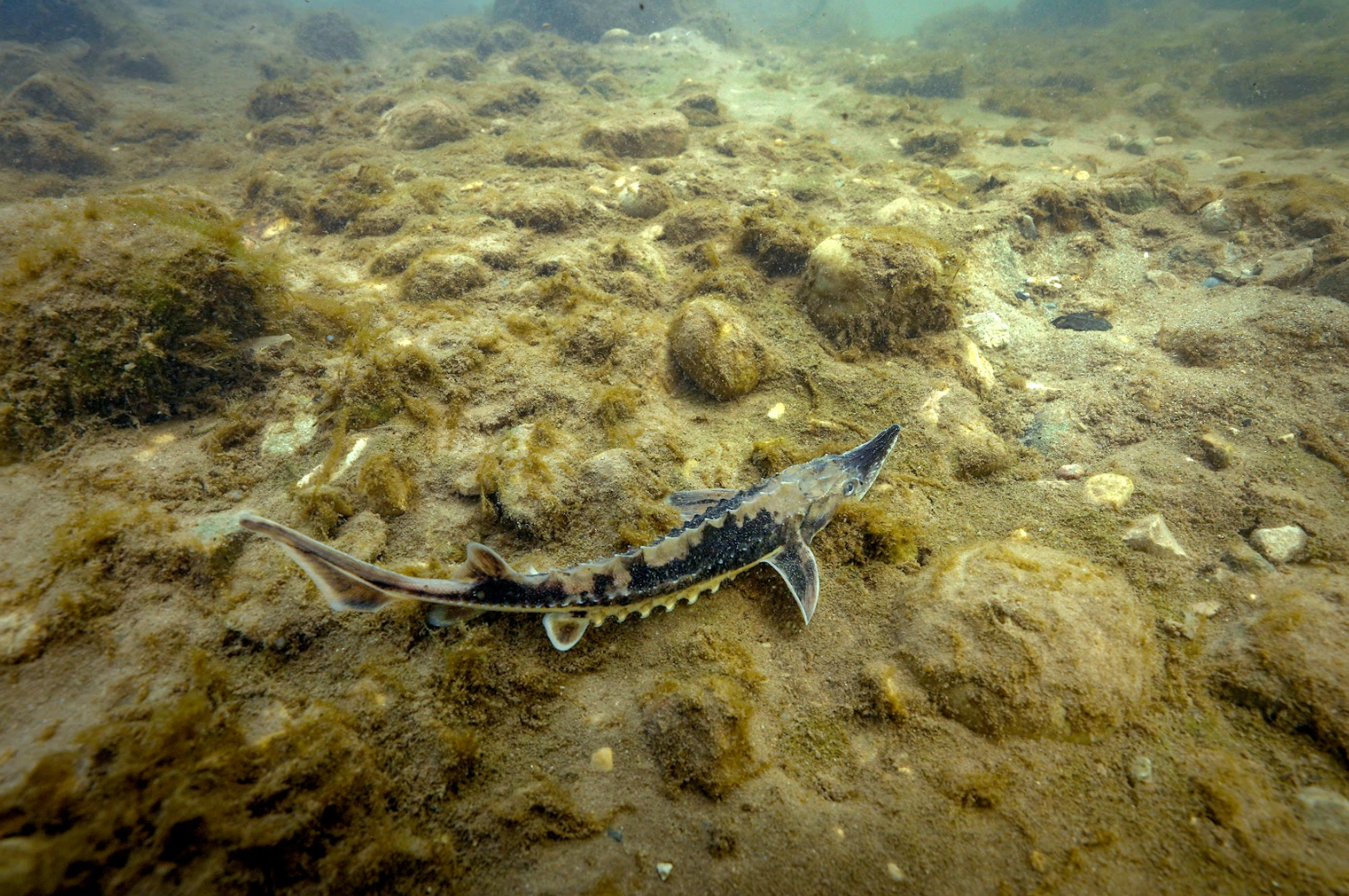
Lake sturgeon
Acipenser fulvescens
Ancient fish
Lake sturgeon (Acipenser fulvescens) are ancient, majestic fish that inhabit the freshwater ecosystems of North America, including the Great Lakes region where they are particularly iconic. These prehistoric creatures boast a unique biology, with distinctive features such as elongated bodies, bony plates known as scutes, and whisker-like barbels that aid in detecting food along the lake bottom. Lake sturgeon are renowned for their longevity, with individuals often living for several decades and reaching lengths of over 6 feet. Their diet primarily consists of small invertebrates, insect larvae, and bottom-dwelling organisms, which they locate using sensory organs known as ampullae of Lorenzini. Lake sturgeon are also known for their remarkable spawning behavior, where they migrate to specific riverine habitats to deposit their eggs on gravel beds. Despite facing threats such as habitat degradation, overfishing, and pollution, efforts to conserve and restore lake sturgeon populations are underway, recognizing their ecological importance and cultural significance.
Fishing for sturgeon
Anglers who pursue lake sturgeon often find themselves immersed in a unique and challenging experience, as these prehistoric giants are known for their strength and resilience. Due to their large size and protected status in many areas, lake sturgeon fishing typically involves catch-and-release practices to ensure the sustainability of populations. Anglers employ specialized gear and techniques, such as heavy-duty rods and reels, sturdy lines, and bottom-fishing rigs baited with natural offerings like nightcrawlers or cut bait. Patience and perseverance are key virtues in lake sturgeon fishing, as these elusive creatures can be difficult to locate and hook.
A helping hand
The Little River Band of Ottawa Indians is a federally recognized Native American tribe located in Manistee County, Michigan, with a deep cultural connection to the Great Lakes region. As stewards of their ancestral lands and waters, the tribe has undertaken significant efforts to protect and restore the populations of lake sturgeon, a culturally significant and ecologically important species. The tribe's Natural Resources Department collaborates with state and federal agencies, as well as other tribal partners, to implement conservation initiatives aimed at safeguarding lake sturgeon habitats, monitoring populations, and conducting research to better understand the needs of these ancient fish. Through habitat restoration projects, fish passage improvements, and educational outreach efforts, the Little River Band of Ottawa Indians demonstrates a strong commitment to preserving the ecological integrity of their traditional territories and ensuring the continued survival of lake sturgeon for future generations.
Right: A group of locals participate in a lake sturgeon release party hosted by the Little River Band of Ottawa Indians and other state agencies. Allowing groups to participate in releases allows them to appreciate the species and its important to the environment.
Right bottom: Buckets of young lake sturgeon are ready to be released into the wild with the helping hand of volunteers in Manistee, Michigan.
Photo credit: USGS




